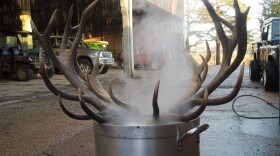“Fixin’ to” is the national verb of Texas. Certainly you find it in use in other states, but it is particularly pervasive in Texas.
For many of us it is the default verb for anything to do with the near future. And most of us replace that final “o” with an “a”– as in, Fixin’ Ta. As my mom would say, “I’m fixin’ ta vacuum in there, so y’all don’t get too comfortable.”
Fixin’ to is about three things:
- Intentionality: Something we intend to do, which is why so little gets done in many homes. We are always fixin’ to and not fixin’. Congress has the same problem. Always fixin’ to fix something, but not fixin’ it.
- Contemplation: “Hold your horses, Martha, I’m fixin’ to decide.”
- Forewarning: “I fixin’ to get mad here in a minute.”
If you told me I couldn’t use fixin’ to, like many Texans, I would be grammatically paralyzed for a while. I have no back up at this position. I have no other verb sitting on the on the bench ready to go in.
Oh, I could send in “preparing to,” but it’s just not as good a grammatical scrambler as fixin’ to is. Fixin’ to has it all – it can run, pass, stall for time and run out the clock.
For instance, I asked my brother Redneck Dave if he had fixed the mower I dropped at his house last week. He said:
“I was fixin’ to fix it this mornin’, but I decided to fix breakfast first cuz I saw all these fixins which I knew would make a fine omelette. So right now I’m fixin’ to eat, but when I finish I’m fixin to look for my tools –if I can find ‘em – and get started on fixin’ your mower.”
You have to stand in awe of that sentence for its sheer dexterity and work avoidance.
Let’s break it down by tense now:
- Past tense: “I done fixed it,” which is rare because mostly we’re merely planning to fix things.
- Conditional Tense: “I might coulda fixed it if he hadn’t tried to fix it first, but now it’s fixed for good.”
- A beautiful mash up of present and future that doesn’t have a name, really. It is a pure southern hybrid: “I’m fixin’ to fix it.”
- Future: “Soon as I finish this beer, I’m fixin’ to think of a way to fix that for you.”
And now I’m fixin’ ta wrap up this commentary by leaving you with the best bit of folk wisdom ever uttered: “If it ain’t broke, don’t fix it. ”
W. F. Strong is a Fulbright Scholar and professor of Culture and Communication at the University of Texas Rio Grande Valley. And at Public Radio 88 FM in Harlingen, Texas, he’s the resident expert on Texas literature and legends, Blue Bell Ice Cream, mesquite smoked brisket and Whataburger (with cheese, naturally).
Have a Texas-ism that deserves a fair shake? A favorite mispronunciation? Tweet Texas Standard and we’l let W.F. know.




